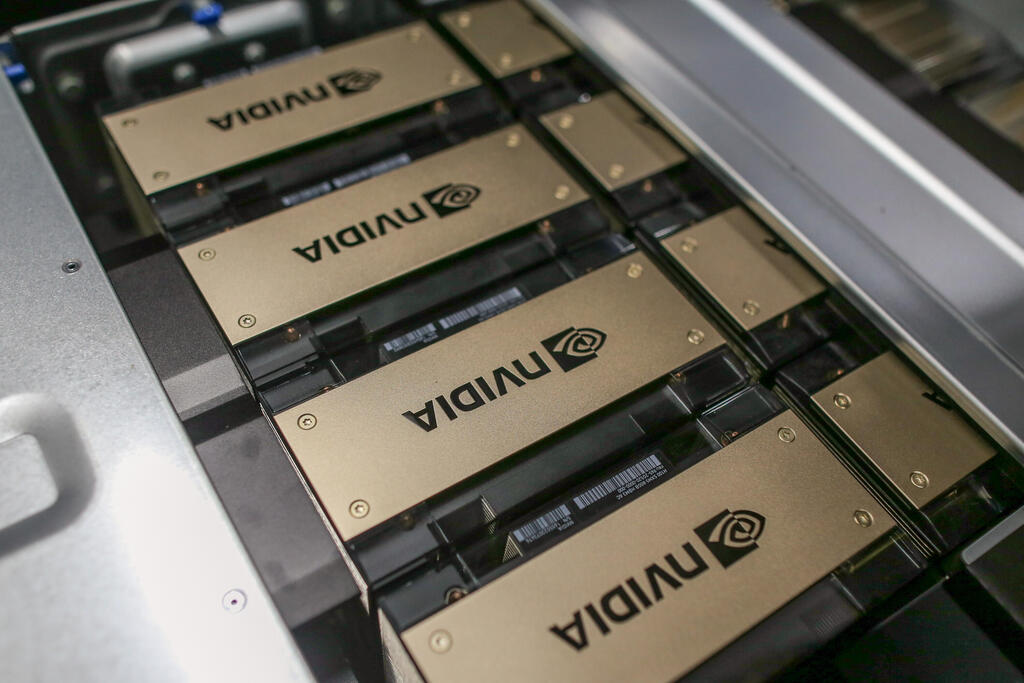
Israel moves swiftly to acquire AI chips before Biden export limits take effect
The head of the artificial intelligence branch at the Ministry of Defense admitted that the ministry has pivoted strategies as U.S. restrictions threaten Israel's AI and security advancements.
As part of an emergency discussion on Israel's decline in the field of AI and the U.S. decision to limit the export of chips to Israel, a representative from the Ministry of Defense revealed that the ministry is expediting purchases and adjusting strategies in anticipation of U.S. government restrictions on AI chip exports. "We are gradually losing our security independence. The IDF and defense establishment have had to shift strategies to comply with anticipated U.S. restrictions. We've already begun advancing purchases to address these limitations," said Lt. Col. Elad Dvir, head of the artificial intelligence branch at the Ministry of Defense. Dvir also noted that discussions with the U.S. on the issue began last year, culminating in a joint AI declaration, that did not prevent the new export regulations.
A special session was held on Wednesday by the Knesset's subcommittee on Artificial Intelligence and Advanced Technologies, chaired by MK Orit Farkash Hacohen, to address Israel's lag in AI development relative to the rest of the world and the absence of a comprehensive government strategy. The discussion also focused on the implications of the Biden administration's export restrictions for Israel.
At the conclusion of the session, MK Orit Farkash Hacohen remarked, "Today's discussion is more critical than ever. The AI chip import restrictions recently announced by President Biden send a clear signal that Israel does not share the same vision for artificial intelligence and advanced technologies as the United States."
She elaborated: "The restrictions affect several areas, including the number of processors, model layouts, advanced and fast memory components—where memory itself is already a bottleneck. Additional limitations apply to software, weights, processor counts, and memory components, with a state-level quota imposed that requires navigating bureaucracy to increase. Currently, Israel is categorized under Tier B and Tier D. This ranking reflects a lack of trust in our cyber mechanisms and security infrastructure. Israel is perceived as a nation without a cohesive national security strategy."
She concluded, "Israel must utilize the 120 days before the U.S. government finalizes these restrictions to establish a clear plan for improving its ranking within the U.S.-aligned countries in artificial intelligence and advanced technologies."
The discussion included representatives from the Ministry of Innovation, the Ministry of Foreign Affairs, the Ministry of Defense, the Innovation Authority, the National Economic Council, academia, research institutes, and AI companies. Speakers included Dr. Ariel Sobelman (senior researcher at INSS), Michael Eisenberg (general partner at the Aleph venture capital fund), Daniel Schreiber (co-founder of Lemonade), and Uri Eliabayev (founder of MDLI).
Dr. Ariel Sobelman, researcher at the Institute for National Security Studies (INSS), stated: "The tightening of AI chip export restrictions could severely impact Israel. Even if the decision is reversed, we cannot ignore the ongoing decline in Israel's AI standing. The American decision will only accelerate this trend." He warned, "Relying on hopes that a future administration will lift these restrictions is misguided. Even if reversed, we must treat this as a wake-up call and act decisively."
Daniel Schreiber, CEO of Lemonade, said: "Recent technological advances have fundamentally shifted paradigms, but Israel has yet to adapt. The long-term implications of this lag will be felt for years. In the coming decade, several companies in the chip industry will achieve trillion-dollar valuations, but Israeli firms are unlikely to be among them. This will be a missed opportunity for generations."
Michael Eisenberg, general partner at the Aleph Fund, criticized the government's approach, saying: "The same government amateurism persists. There is an urgent need for a centralized government body with extensive powers to streamline regulations. AI will determine global leadership in the coming decades, and Israel is not yet in the game. This issue is critical for our economic and security future."
Uri Eliabayev, founder of MDLI, argued: "Israel must actively oppose the Biden administration's new regulations and ensure unrestricted access to advanced hardware. Diplomatic and technological collaboration with the U.S. is essential to close gaps and improve Israel's position. A dual approach on both fronts will help maintain Israel's edge in AI."
Ziv Katzir, head of the TELEM (The National Infrastructure Forum for Research and Development), added: "Israel must prioritize developing mid-sized companies valued at a billion dollars, rather than aiming for companies like OpenAI. We need computers ranked in the global TOP 50—not the TOP 10—because the cost-benefit ratio is better aligned with our capabilities."














